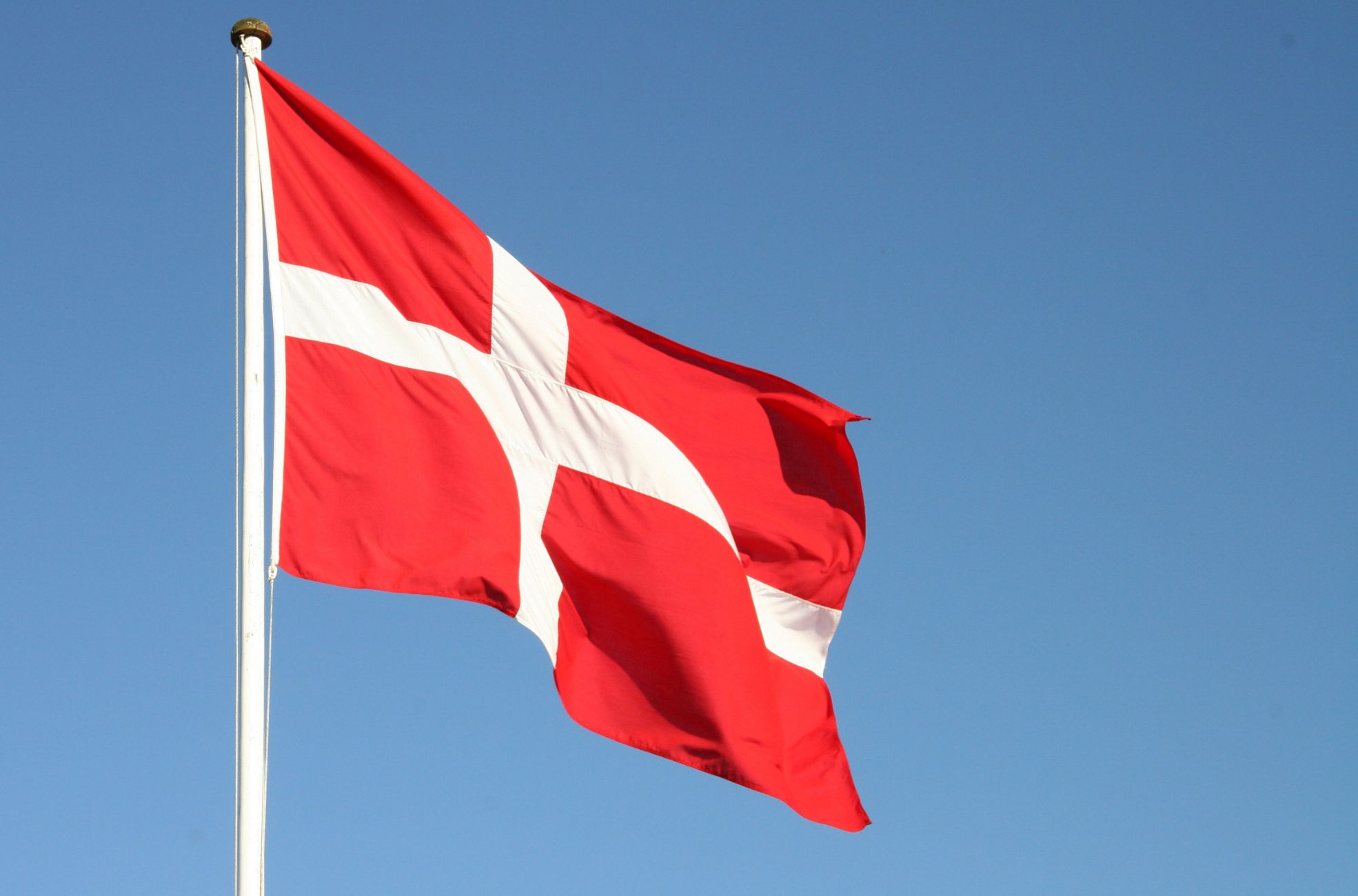Denmark’s reputation as a hub for innovation and entrepreneurship makes learning how to start a business in this Denmark exciting for many. With a supportive ecosystem, streamlined registration processes, and a clear legal framework, this Nordic country presents an attractive environment for both local and foreign entrepreneurs. We look at the essential steps of establishing your venture in Denmark, from choosing the right business entity to navigating the financial and legal considerations.
Whether you’re a seasoned business owner or a budding entrepreneur, you’ll find valuable insights into the Danish market, including how to research, develop your business idea, and ensure compliance with local laws and regulations. Let’s dive into the process and discover what it takes to turn your business aspirations into a reality in Denmark.
Danish Business Structure
Choosing the Right Business Entity
In Denmark, you’ve got a variety of business entities to choose from. Limited companies are a popular choice because of their structure and the limited liability they offer to shareholders. There are three main types: public limited companies (Aktieselskab, A/S), private limited companies (Anpartsselskab, ApS), and limited partnership companies (Partnerselskab, P/S). Each has its own rules about minimum share capital. For instance, you’ll need USD 5,865 for a private limited company, while a public limited company and partnership companies require USD 58,650.
You can contribute the share capital in cash, assets, or a mix, and there’s the option to pay just 25% in cash when you’re starting out, as long as you meet the minimum.
Shareholders, who can be individuals or other companies, don’t need to be Danish citizens. They own the company and call the shots through general meetings and by keeping an eye on the supervisory board full of directors or the general manager. Their risk is limited to their investment, so they’re not personally on the hook for the company’s debts. Shareholders usually make decisions by a simple majority, and they have to get together once a year to make big decisions, such as approving the annual report and figuring out what to do with profits.
The Role of the Central Business Register (CVR)
The Central Business Register (CVR) is a key player in Denmark’s business scene. It’s the go-to for all business info in Denmark and Greenland. If you’re looking to do business in Denmark, you’ll need a CVR number. You get this once you’ve registered with the Danish Business Authority, which should be done within two weeks of signing the memorandum of association. The CVR is a business identification number that makes registration smoother and helps keep things transparent by sharing details of key executives and shareholders.
Considerations for Foreign Entrepreneurs
If you’re a foreign entrepreneur eyeing the Danish market, there are a few things to keep in mind. You don’t have to be a Danish national or have a physical office in Denmark, but you need a registered office there. This can be sorted out with a c/o address through a legal firm or service provider. Depending on the type of central business registration number of a limited company you go for, you’ll need to set up a board of directors or an executive board.
You should also be aware of the Danish corporate income tax rate, which is 22% of company profits. Shareholders are also taxed on what they earn from the company. The Danish Companies Act lays out the rules for changing share capital, and you’ll need a qualified majority of shareholders to make any adjustments.
Companies need a NemKonto/Easy Account for banking. Banks usually open an account once your limited liability company is fully set up, which can take a few weeks because of anti-money laundering checks. Also, depending on their size, some limited companies have to get their annual reports checked by registered auditors.
When you’re putting together legal documents, the memorandum of association and articles of association are key and have to be ready for registration. These outline your company’s structure, share capital, and how it’s run. If you’ve got several shareholders, it’s common to make a shareholders’ agreement to sort out things like voting rights and how shares can be transferred.
Foreign service providers need to register with the Register of Foreign Service Providers (RUT). Helpful resources like businessinddenmark.dk and startupdenmark.info can help with registration and visa applications based on your business plan. Local Business Hubs can also lend a hand if you’re setting up shop in Denmark.

Developing Your Business Idea
Market Research in Denmark
Understanding the local market is crucial before initiating a business venture in Denmark. Researching market trends, consumer preferences, and competitors is essential. The country’s supportive innovation and business growth ecosystem includes various public institutions and initiatives. The Danish Board of Business Development focuses on regional business needs and allocates funds for business initiatives. Innovation Fund Denmark awards grants for high-risk climate, health, and technology projects. Entrepreneurs can also benefit from programs aimed at advancing energy, environmental technology, and the food industry.
Numerous business hubs across Denmark provide tailored services, including growth strategies, financial assistance, and networking opportunities. Online resources like Virksomhedsguiden offer comprehensive information on regulations and support services. Additionally, incubators and accelerators provide entrepreneurs with workspace, mentorship, and capital.
The Trade Council and Innovation Centre Denmark assist Danish companies in expanding their exports and locating international partners and investors. A branch office, the IFU, offers risk capital and partners with Danish enterprises for those targeting developing countries and emerging markets.
Defining Your Value Proposition
Crafting a distinct and persuasive value proposition is crucial, particularly in Denmark’s competitive landscape. It involves clearly communicating the unique benefits of your offerings. Support from Denmark’s cluster organisations, which foster innovation and collaboration across various industries, can be instrumental in this process.
These entities facilitate connections with research institutions, companies, agencies, and policymakers, enhancing your ability to differentiate your offerings. The Danish Foundation for Entrepreneurship promotes entrepreneurial skills at all educational levels, which can be invaluable for refining your business concept and value proposition. Leveraging the expertise and networks these organisations provide can help you carve out a niche in the market.
Intellectual Property Considerations
Securing your IP is a critical step in establishing your business in Denmark. The nation adheres to international IP conventions and treaties. Under the Danish Copyright Act, creators of literary or artistic works automatically receive copyright protection, which persists for 70 years posthumously.
Creators exclusively control the reproduction and public distribution of their work. Performers, producers, and broadcasters enjoy rights for 50 years, while compilations and databases are protected for 15 years from their initial release. Although Denmark does not maintain a public copyright registry, protection is still valid and enforceable.
Registration and defence of rights under Danish law are necessary for trademarks and patents. Registrations from the U.S. are not applicable to private entities in Denmark, making it essential to consult with local legal experts or IP consultants familiar with EU regulations. The U.S. Commercial Service can provide referrals to qualified local attorneys.
Entrepreneurs must proactively research potential partners and secure patent and trademark protection before entering the Danish market. Effective IP management is key to safeguarding your business’s unique elements and ensuring long-term success in Denmark.

Business Registration Process In Denmark
Necessary Documentation
To initiate your own business venture, you must prepare the Memorandum of Association and Articles of Association, which specify your company’s objectives and the location of its registered office.
The names and addresses of the managing members of an independent company are also required. Non-European entrepreneurs must obtain a work permit, whereas EU, EEA, or Nordic country residents have different requirements based on their origin.
Steps to Register Your Business Online
The convenience of the digital age allows for swift online registration. The initial step is to obtain a CVR by registering with the Danish Business Authority, which incurs a fee of USD 98.
After the share capital is deposited and the founding documents are signed, a CVR is promptly assigned. This fee is exclusive of any additional legal costs.
Registering with Tax Authorities
Liaising with Skattestyrelsen following your company’s registration is imperative. If your business conducts taxable activities, you must also register your company for VAT within 30 days of commencement.
For distance sellers, the OSS regime is an available option. VAT registration is obligatory if your business’s VAT-liable sales surpass USD 7,330 within a year. For those with lower sales figures, VAT registration remains voluntary.
Once registered, regular VAT declarations are mandatory. Failure to comply can result in automatic assessment. Should you cease operations in Denmark, deregistration is necessary, although your VAT number can be reactivated if services resume.

Financial Considerations
Opening a Danish Bank Account
Opening a corporate bank account is one of the initial steps for starting a business in Denmark. The process is thorough due to the country’s stringent anti-money laundering regulations. To ensure a smooth process, it’s advisable to have a comprehensive business plan, including a 12-month profit and loss forecast, an annual balance sheet projection, and a detailed cash flow forecast for the same period. These documents demonstrate your solid vision and financial strategy for the bank.
A professional company website can also enhance your credibility with financial institutions. Among the common banks are Nordea and Danske Bank. Some banks, such as Jyske Bank, may not be suitable for new entities due to their audit requirements.
The expense for initiating a company bank account typically ranges from USD 586 to 783, with additional annual fees for account maintenance. If establishing a bank account is challenging, online banking services like Revolut offer alternatives, facilitating opening a corporate account in multiple currencies.
A personal meeting with the bank is usually required, with only the owner or director permitted to attend the onboarding. For an ApS, starting without a corporate bank account is possible, but it will be necessary to deposit share capital after registration and manage client funds. Utilising a personal account for business purposes is not advisable, as it may lead to the account’s termination.
Danish Tax Obligations
Understanding tax obligations is essential for businesses in Denmark. Companies must file tax returns within six months following the end of their fiscal year, which may differ from the calendar year. CIT payments are due in two instalments on the 20th of March and November.
The CIT rate is 22%. There are beneficial tax schemes available, such as one for shipping companies, which allows taxation based on the net tonnage of their vessels. Key employees and researchers might be eligible for a reduced income tax rate of 27% for up to seven years under a special expat tax scheme.
Companies incurring losses in research and development can receive a cash reimbursement of 22% of those losses, up to a maximum cash credit equivalent to the tax value of USD 3.6 million. The tax system in Denmark offers several advantages, including the absence of capital duty, share transfer duty, or wealth taxes, full deduction of patents and know-how, and R&D expenses. Additionally, dividends are typically tax-exempt, and there is no limit on carrying forward losses.
Accessing Business Funding and Grants
The Danish welfare system indirectly supports businesses by ensuring a robust, educated workforce and providing stability. Entrepreneurs can benefit from this environment, which includes funding and grants for innovation and development.

Navigating Danish Laws and Regulations
Denmark is recognised for its conducive business environment, underscored by a legal system that accommodates and promotes sectors such as cleantech, life sciences, and maritime. Compliance with Danish legislation is a prerequisite for international businesses and entrepreneurs entering the market, particularly in areas like employment, health and safety, and data protection.
Employment Laws for Hiring Staff
A robust framework of employment laws in Denmark ensures equitable treatment and remuneration for workers. These laws, influenced by national legislation, EU directives, and case law, dictate the specifics of employment contracts, working hours, leave entitlements, and contributions to social security.
Employers are mandated to issue written terms of employment within a month of an employee’s start date, outlining the job description, workplace, working hours, and remuneration. The standard workweek is 37 hours, expandable to 48 hours, with overtime included.
Mandatory rest periods are enforced, and employers are encouraged to consider flexible work arrangements. Employees enjoy five weeks of paid vacation annually.
Maternity leave provisions include ten weeks, with additional allowances for paternity and parental leave, in line with the European Work-Life Balance Directive. Employers are responsible for accurate tax withholdings and contributions to pensions, unemployment insurance, and maternity funds.
Notice periods for termination vary based on the employee’s tenure, and severance pay may be required for those with extended service. It’s important to note that different regulations may apply to managing directors, employee shareholders, and independent contractors, who are not typically covered by the standard employment laws.
Health, Safety, and Environmental Regulations
The Working Environment Act, overseen by the Work Environment Authority, outlines employers’ obligations to maintain a safe and healthy workplace. This includes providing rest breaks for shifts exceeding six hours and not requiring employees to use paid leave for absences due to illness or caregiving responsibilities.
Your business must comply with stringent environmental directives, both local and EU-wide, that focus on minimising ecological footprints. This encompasses adherence to rules on waste management, emissions, and the use of hazardous materials.
Data Protection and Privacy Compliance
Following the EU’s GDPR, Danish public authorities and businesses must diligently safeguard employee data. The Danish Data Protection Act stipulates the necessity of consent for specific actions, such as background checks and monitoring of company resources. Employees are entitled to review their personal data, and significant fines are imposed for breaches.
Digital salary payments are standard, and payslips must include gross pay, tax withholdings, and social security contributions.
Ready to Launch Your Danish Venture
Navigating the waters of Danish business setup may initially seem like a voyage into the unknown. Still, with the right guidance and preparation, you can dock your enterprise securely on Denmark’s welcoming shores. From understanding legal frameworks to financial planning, the journey requires meticulous attention to detail and a strong value proposition.
Remember, Denmark is more than a gateway to Scandinavian charm; it’s a hub of innovation and opportunity, ready to embrace entrepreneurs with open arms. Arm yourself with knowledge, respect local customs, and leverage the support networks available to turn your business vision into a thriving reality. Whether you’re a native Dane or an international entrepreneur, Denmark’s robust economy and transparent regulatory environment make it the perfect place to plant the seeds of your business ambition and watch it grow.
FAQs
Can You Start a Business in Denmark as a Foreigner?
Yes, foreigners can start a business in Denmark. The country offers a straightforward process for setting up a business, applicable to both EU/EEA citizens and non-EU/EEA citizens. However, non-EU/EEA nationals may need to obtain a residence and work permit before they can commence a business venture. Denmark’s business environment is known for its transparency and ease of doing business, making it an attractive destination for foreign entrepreneurs.
How Much Does It Cost to Start a Business in Denmark?
The cost to start a business in Denmark varies by the type of business or legal entity you choose. For example, registering an ApS (Private Limited Company) requires a minimum share capital of USD 5,865, while an IVS (Entrepreneurial Limited Company) was abolished in 2019. Sole proprietorships have no minimum capital requirement but do involve relatively low registration fees. Always account for additional costs such as legal advice, insurance, and permits.
Is Denmark A Good Place To Start a Business?
Denmark is considered one of the best countries to start a business due to its efficient bureaucracy, strong rule of law, and transparent business environment. The country ranks high in ease of doing business indices and offers a robust startup ecosystem, especially in Copenhagen. Denmark’s emphasis on innovation, digital readiness, and a highly skilled workforce creates a conducive environment for new ventures. Additionally, the Danish government provides various support services for startups.
What Kind of Business is Best to Start in Denmark?
Denmark is renowned for its green energy, ICT, life sciences, and design industries. Startups that focus on sustainability, renewable energy, healthcare, and digital services have significant potential due to the country’s commitment to innovation and the environment. Businesses that leverage Denmark’s strong design heritage can also find a receptive market. The best business to start ultimately depends on your expertise, market research, and alignment with Denmark’s strategic industries.









